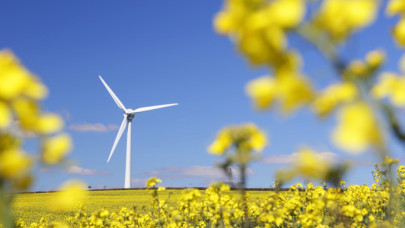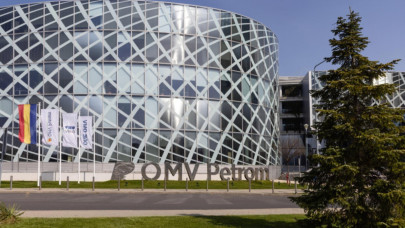How does Ursus Breweries prioritize sustainability within its operations and product offerings? What specific initiatives or investments has the company undertaken to minimize its environmental footprint and promote green energy solutions?
At Ursus Breweries, we place great importance on establishing meaningful connections with all stakeholders in our community, keeping in mind our impact on the environment as well. To guarantee a positive impact on society, we have implemented a long-term sustainable development strategy with clear milestones.
We are making efforts and investments aimed at reducing water consumption, lowering our carbon footprint, and improving packaging management. Our brands also actively engage with communities. Our Ciucas brand, for instance, has developed its platform "Clean nature, true relaxation”. Through this platform and in partnership with Act for Tomorrow, the brand has organized multiple cleanup camps, inviting volunteers to join. Moreover, Ciucas has set up green areas (the Ciucas meadows) where people can spend time outdoors, provided with the infrastructure for picnics and proper waste disposal, including through selective collection.
Sustainable development is an integral part of our daily agenda at Ursus Breweries. We evaluate every project with a focus on its long-term impact, beyond just a business perspective. In 2023, we took significant steps, with two noteworthy projects. A €2 million investment in our Buzau plant, where we installed a system that recovers heat energy from burnt gases, aiming to reduce natural gas consumption in the beer manufacturing process by 18% and decrease carbon emissions. Another advancement towards our goals was achieved through concluding a virtual power purchase agreement (VPPA) with Enery, the first of its kind in this industry. This agreement involves acquiring energy from a newly built solar park for all of our breweries.
With a target to become carbon neutral across our entire supply chain by 2040, we will continue supporting relevant investment projects for sustainable business growth, fostering positive effects for our partners and the local community.
How does Ursus Breweries integrate ESG principles into its supply chain management, from sourcing raw materials to packaging and distribution? What steps has the company taken to ensure responsible consumption and production practices?
The sustainable development initiatives undertaken by Ursus Breweries encompass six key areas of intervention, aligning with ESG principles: reducing carbon emissions, lowering water consumption, sourcing raw materials sustainably, utilizing reusable and recyclable packaging, advocating for inclusion and well-being, and promoting responsible alcohol consumption behavior.
In this respect, already by 2022 we successfully reduced carbon emissions by 50% compared to 2019, attributed to investments in process automation and infrastructure, and we are pushing further. Additionally, we transitioned to electric forklifts from LPG ones. We also began replacing our car fleet with environmentally friendly vehicles, although this process is directly connected with the development of the proper infrastructure for this type of vehicle. A long-term project to replace coolers with lower-emission models is also in progress.
Regarding water consumption, we achieved improved efficiency, using 2.77 liters for each liter of beer produced. Furthermore, over 50% of water in our Buzau, Brasov, and Timisoara breweries is drawn from our wells.
Advocating for responsible alcohol consumption remains a top priority. We continue to innovate and develop non-alcoholic and low-alcohol options, aiming for 20% of our portfolio to consist of non-alcoholic beverages by 2030. We have also reiterated our commitment to reducing alcohol consumption among minors through our strategic partnership with the Federation of Non-Governmental Organizations for Children (FONPC). Over 2,800 parents and teachers have been trained to address this issue until now.
And these are just some of the advancements we've made in recent years. Our focus is on continuing our efforts.
With increasing consumer demand for eco-friendly products, how does Ursus Breweries adapt its marketing strategies and product innovation to cater to this growing segment?
In terms of packaging, we have already taken significant steps towards our goals and in 2022, compared to our baseline year of 2019, we reduced the amount of plastic in our packaging by 24%.
As mentioned previously, our Ciucas brand has embedded a sustainable approach in its brand DNA. Since 2019, the brand has crafted its communication platform directly aligned to foster positive social change. Ciucas not only serves as a connection between the community and nature but has also undertaken the responsibility of organizing events that encouraged community members to contribute to the collection of 12 tons of waste last year. The brand has employed both ATL and BTL measures to enhance its visibility and attract community members to participate in its nature-focused initiatives.
How do Ursus Breweries team up with communities, governments, and industry to enhance environmental stewardship and address green energy challenges?
We take our mission seriously and strive to establish meaningful connections with all members of our ecosystem: employees, partners, clients, the wider community, and authorities. Our pioneering initiative of last year, of concluding a VPPA agreement with Enery, providing renewable energy for our breweries, reflects the way we strive to collaborate and find solutions. We are proud of this endeavor which takes us closer to achieving our sustainability goals.
Apart from our green energy efforts, we are open to participating in relevant debates, contributing our expertise, and making our resources available. An example of such active collaboration is the development of the Deposit Return System, aimed at properly collecting and recycling packaging. The success of such a large-scale project requires collective effort and contribution from everyone and we are proud to have been at the forefront of this initiative with a long-term positive impact on the Romanian society
Recent years have shown rapid changes in economic reality, requiring us to find solutions to adapt to sometimes unforeseen situations. The most viable approach can only be discovered through collaborative efforts, sharing ideas, and being a trustworthy partner to those around.
What milestones or targets has the company set for itself in terms of reducing carbon emissions, promoting circular economy practices, or enhancing social impact?
At Ursus Breweries, we firmly believe that the only way to ensure the long-term development of our business is by embracing a more sustainable approach. To monitor progress and identify areas that require further attention, it is natural to assess every aspect related to the business's performance and environmental impact. We take this process seriously and adhere to GRI standards when creating our sustainability reports. In 2023 we released our 7th report, demonstrating that we are on track with our plans.
Our development roadmap is guided by our long-term sustainable development strategy, Legacy 2030, structured around four key pillars: People, Planet, Portfolio, and Profit. Our initial milestone, to be achieved by 2025, includes commitments to using electric energy from 100% renewable sources in our breweries, achieving a water usage efficiency of 2.75 liters for every liter of beer produced, and sending zero waste to landfills. The second milestone, set for 2030, involves reaching carbon neutrality in our factories, reducing emissions throughout our entire supply chain by 30%, sourcing ingredients sustainably, having 100% reusable, recyclable, or using recycled material (at least 50%) packaging, reaching 20% non-alcoholic products in our portfolio, and ensuring 50% of leadership positions are held by women.












